|
Books Should Be Free Loyal Books Free Public Domain Audiobooks & eBook Downloads |
|
|
Books Should Be Free Loyal Books Free Public Domain Audiobooks & eBook Downloads |
|
Religion |
|---|
|
Book type:
Sort by:
View by:
|
By: Jeanne Marie Bouvier de la Motte Guyon (1648-1717) | |
|---|---|
 Spiritual Torrents
Spiritual Torrents
| |
 Letters of Madam Guyon
Letters of Madam Guyon
| |
By: Oliver Optic (1822-1897) | |
|---|---|
 Field and Forest The Fortunes of a Farmer
Field and Forest The Fortunes of a Farmer
| |
 Desk and Debit or, The Catastrophes of a Clerk
Desk and Debit or, The Catastrophes of a Clerk
| |
 Little By Little or, The Cruise of the Flyaway
Little By Little or, The Cruise of the Flyaway
| |
By: Bernard Shaw (1856-1950) | |
|---|---|
 Bernard Shaw's Preface to Androcles and the Lion
Bernard Shaw's Preface to Androcles and the Lion
| |
By: Jonathan Edwards (1703-1758) | |
|---|---|
 Select Sermons of Jonathan Edwards
Select Sermons of Jonathan Edwards
Jonathan Edwards was a colonial American Congregational preacher, theologian, and missionary to Native Americans. Edwards “is widely acknowledged to be America’s most important and original philosophical theologian.” His work is very broad in scope, but he is often associated with his defense of Calvinist theology, the metaphysics of theological determinism, and the Puritan heritage. His famous sermon “Sinners in the Hands of an Angry God,” emphasized the just wrath of God against sin and contrasted it with the provision of God for salvation; the intensity of his preaching sometimes resulted in members of the audience fainting, swooning, and other more obtrusive reactions... | |
By: John Owen (1616-1683) | |
|---|---|
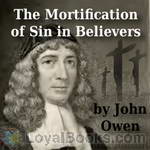 The Mortification of Sin in Believers
The Mortification of Sin in Believers
John Owen, in this Puritan classic, writes succinctly of the matters of the heart in dealing with sin in the life of the Christian. In a way that cuts right to the heart of the matter while leaving no room for excuses, Owen encourages the Christian to “Be killing sin or sin will be killing you.” | |
By: George Berkeley (1685-1783) | |
|---|---|
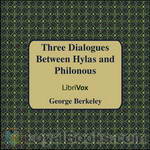 Three Dialogues Between Hylas and Philonous
Three Dialogues Between Hylas and Philonous
Berkeley uses Hylas as his primary contemporary philosophical adversary, John Locke. A Hylas is featured in Greek mythology and the name Hylas is derived from an ancient Greek word for “matter” which Hylas argues for in the dialogues. Philonous translates as “lover of mind.” In The First Dialogue, Hylas expresses his disdain for skepticism, adding that he has heard Philonous to have “maintained the most extravagant opinion… namely, that there is no such thing as material substance in the world.” Philonous argues that it is actually Hylas who is the skeptic and that he can prove it. Thus, a philosophical battle of wit begins. | |
By: Desiderius Erasmus (1466/69-1536) | |
|---|---|
 The Praise of Folly
The Praise of Folly
The Praise of Folly (Greek title: Morias Enkomion (Μωρίας Εγκώμιον), Latin: Stultitiae Laus, sometimes translated as In Praise of Folly, Dutch title: Lof der Zotheid) is a satirical essay written in 1509 by Desiderius Erasmus of Rotterdam (1466/69-1536). It is considered one of the most influential works of literature in Western civilization and one of the catalysts of the Protestant Reformation.It starts off with a satirical learned encomium after the manner of the Greek satirist... | |
By: Saint Therese (1873-1897) | |
|---|---|
 The Story of a Soul
The Story of a Soul
Marie Francoise Therese Martin, affectionately known as ‘The Little Flower’, was born on January 2, 1873, in Alencon, France to Louis Martin and Zelie Guerin. She was the youngest and one of five surviving sisters of the nine Martin children. When Therese was 3, her mother died. Louis Martin moved his family to Lisieux to be closer to his late wife’s brother and his family. It was there that Therese’s sister, Pauline, entered the Carmel at Lisieux on October 2, 1882. Therese at that time also heard the Divine Call to religious life... | |
By: George Alfred Henty (1832-1902) | |
|---|---|
 A Jacobite Exile Being the Adventures of a Young Englishman in the Service of Charles the Twelfth of Sweden
A Jacobite Exile Being the Adventures of a Young Englishman in the Service of Charles the Twelfth of Sweden
| |
By: Saint Justin Martyr | |
|---|---|
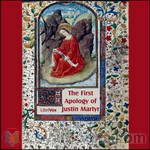 The First Apology of Justin Martyr
The First Apology of Justin Martyr
The purpose of the Apology is to prove to the emperors, renowned as upright and philosophical men, the injustice of the persecution of the Christians, who are the representatives of true philosophy … Christians are the true worshipers of God, the Creator of all things; they offer him the only sacrifices worthy of him, those of prayer and thanksgiving, and are taught by his Son, to whom they assign a place next in honor to him. This teaching leads them to perfect morality, as shown in their teacher’s words and their own lives, and founded on their belief in the resurrection. | |
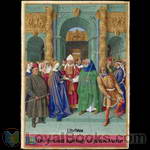 The Second Apology of Justin Martyr
The Second Apology of Justin Martyr
A defense of the Christian faith delivered by St. Justin Martyr to the Roman Senate in the second century AD | |
By: Théodule Ribot (1839-1916) | |
|---|---|
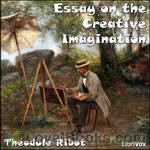 Essay on the Creative Imagination
Essay on the Creative Imagination
“It is quite generally recognized that psychology has remained in the semi-mythological, semi-scholastic period longer than most attempts at scientific formulization. For a long time it has been the “spook science” per se, and the imagination, now analyzed by M. Ribot in such a masterly manner, has been one of the most persistent, apparently real, though very indefinite, of psychological spooks. Whereas people have been accustomed to speak of the imagination as an entity sui generis, as a... | |
By: Russell Herman Conwell (1843-1925) | |
|---|---|
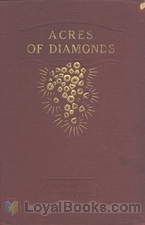 Acres of Diamonds
Acres of Diamonds
Text of famous inspirational lecture and biography of Russell Conwell, a Baptist minister and Temple University Founder | |
By: Chesterton, G. K. | |
|---|---|
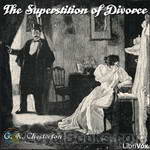 The Superstition of Divorce
The Superstition of Divorce
This short book was written in 1920, and in it Chesterton, with his usual wit and incisive logic, presents a series of articles defending marriage and indicating the weaknesses in divorce. He did this 16 year before the first Christian denomination in the world allowed it’s members to divorce. Till then Christendom was unanimous in standing against it. Chesterton saw clearly the trends of this time, and delivered this defense. | |
By: Jewish Publication Society of America | |
|---|---|
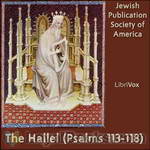 The Hallel (Psalms 113-118)
The Hallel (Psalms 113-118)
Hallel (Hebrew: הלל “Praise [God]“) is part of Judaism’s prayers, a verbatim recitation from Psalms 113-118, which is used for praise and thanksgiving that is recited by observant Jews on Jewish holidays. Summary from WikipediaRead by Délibáb, D.E. Wittkower, Jc Guan, Katie Gibboney, Leon Mire, and Scott Sherris | |
By: Lafcadio Hearn (1850-1904) | |
|---|---|
 Japan: An Attempt at Interpretation
Japan: An Attempt at Interpretation
Greece-born Lafcadio Hearn (1850 - 1904) spent decades of his life in Japan, even marrying a Japanese woman, thus becoming a Japanese citizen by the name of Koizumi Yakumo (小泉 八雲). He wrote many books on Japan, especially about its folklore. In this posthumously published book, he takes a closer look at Japan's religious history: How it developed from ancient beliefs into Shintoism, resisted suppression attempts by both Buddhism and Christianity and how – despite efforts to westernise Japan during the era known as Meiji Restoration – it remained the basis for Japanese society... | |